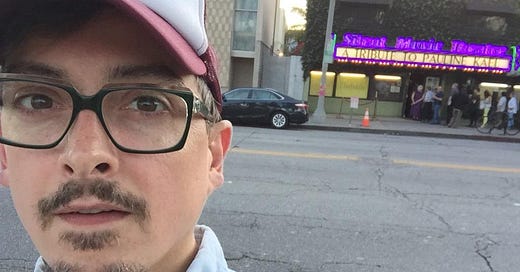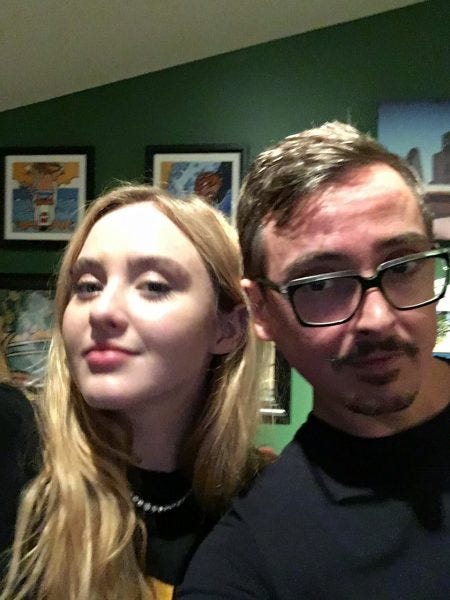Bob Berens talks writing for ‘Supernatural’ and his favorite episode
Click to read the full story: Bob Berens talks writing for ‘Supernatural’ and his favorite episode
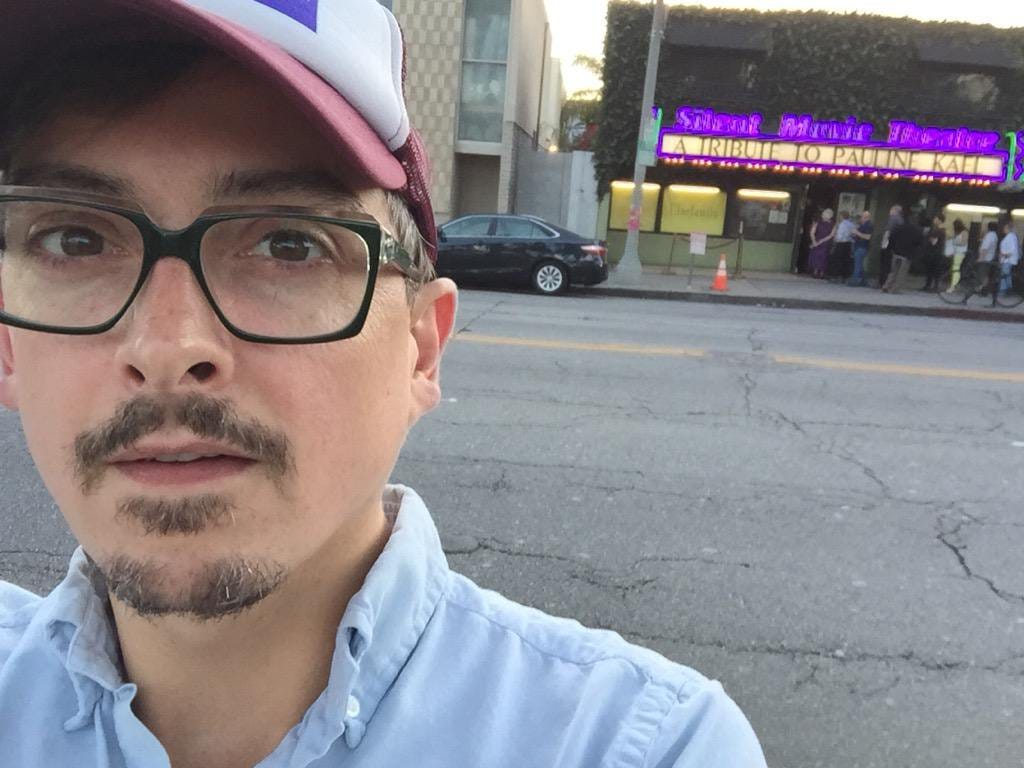
Bob Berens. It’s a name well-known in the Supernatural circles, as the writer who came on in Season 9, with a resume of episode writing and Executive Story editing that reads like a fan’s wet dream. Alex Annie Alexis Ann – where the one and only Jody Mills is the star of the show, and it worked perfectly. Baby – who knew the point of view from a car could be so interesting? Red Meat – that episode still gives me the chills. Now a supervising producer, Bob is moving up in the world – and we fans are looking forward to the ride in front of us.
Berens is also associate producer of the documentary What She Said: The Art of Pauline Kael, one we’re looking forward to seeing.
Don’t forget to check out all of our Supernatural interviews here.
How did you get started as a writer?
I’ve been a writer since before I knew how to write—when I was about five years old, my teacher had us “write” stories by dictation to her. The story I dictated was called “I Found Out Who I Really Should Marry” and was about two sets of twins who fell in love with each other but accidentally married the wrong twin on their wedding day, only to be reunited and properly remarried to the “right” twin in heaven after they all died in a fire. I am fairly certain I plagiarized certain elements of the story, but my teacher and my mother didn’t know that– I got a very encouraging response from both of them. A result of which was that I learned to identify as “a writer” at a very young age, and to use it to define myself and stroke my own eternally childish and insatiable ego. There are the lofty parts of this pursuit—learning to love the process/the work of writing; the sincere enjoyment of imagining myself into other worlds and situations and characters—but the perpetually dangling carrot of praise, that sweet ego reward, is what really set me on my course.
How has the writing for Supernatural changed over the past four seasons?
I think every season has posed shifts to the writing of the show, depending on what the larger story we’re telling is. For me, the bigger change has been in writing more episodes and being tasked with writing more “myth” stories and fewer standalones.
What was it like writing Bloody Messiah for Rock Never Dies?
It was a blast, and ridiculously easy because Jay Gruska was incredibly kind and encouraging and held my hand through the whole process. I wrote most of the lyrics, which Jay tweaked a bit here and there to fit his melody and his arrangement. But in truth even that part came from Jay’s encouragement—he coached me through even the process of generating lyrics, instructing me on what to do and patiently explained how he would help me do it. It was fun to write in a deliberately outmoded style of lyrics—grandiose, overripe, “rock.” It was also fun trying to skew the themes of the lyric in such a way that they felt both like something Vince/Ladyheart could’ve written decades ago, but that also spoke to Lucifer’s themes and the themes of the episode. And then I got to hear what Jay and Rick did with it– they made it an actually great song, one that STILL occasionally gets stuck in my head.
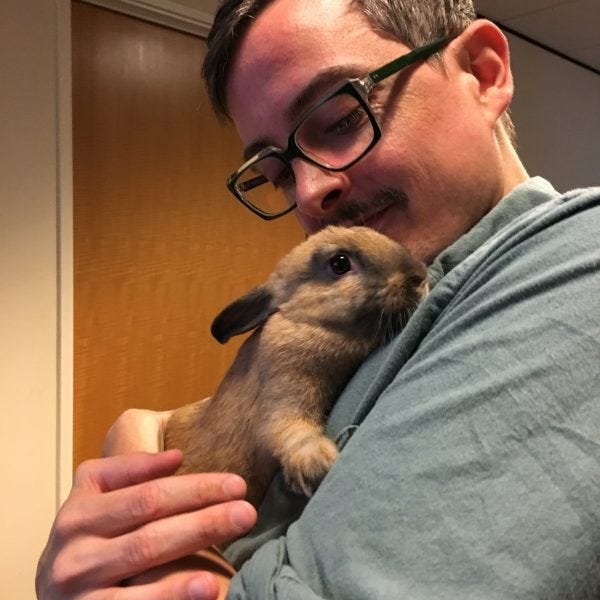
Out of all of the episodes that you’ve written, which one was your favorite?
“Alex Annie Alexis Ann.” It just had a very organic story break, where the story kept evolving, and it kept becoming clear that what the story wanted to be, and what the story could be, was a really strong Jody-centric story. It wasn’t some attempt to sideline the boys, it just emerged that it was primarily her (and Alex’s) story—and that by virtue of Kim’s awesomeness and how much equity she and the character had built up with the audience over many seasons, we could get away with leaning really hard on that side of things– without it feeling like we were breaking from the show’s template. Ultimately, we got to play Jody experiencing the same kind of hard choices and taking the same heroic risks we ordinarily get to play with Sam and Dean. And I love what’s become of that world–the Jody/Alex/Claire world–within our show, knowing that there are all these other stories and dynamics playing out outside the purview of the flagship. But actually it might be a tie with “The Executioner’s Song” because of how amazing that final battle was—Phil, Jensen, and Timothy just blew me away. It was epic.
You’re credited as an “executive story editor” – how is that different than a writer? (As in – what do you do?)
I’m actually a Supervising Producer this season! And the truth is that in television, these titles can mean a lot or very little, depending on the show. They’re a function of seniority and experience and negotiation, not a hard-and-fast indication of what a writer contributes to a show. I have taken on some new roles on the show as I’ve moved “up” title-wise, but that’s more a function of time on the show than a consequence of title. Writing in television is a really interesting and dynamic mix of rigid hierarchy– your number one job is always to serve the vision of your showrunner– and complete and utter creative democracy– a good idea is a good idea, whether it comes from the writer’s assistant or an E.P.
What is your opinion of the Supernatural fandom and the #spnfamily?
You’re nuts, and I love you. Seriously, I don’t think you can make any statement about a fandom as big and boisterous as the SPNFamily without instantly contradicting yourself. The fandom is incredibly kind and generous and does so much as a collective to support one another. And at the same time, there are some serious divisions within the fandom you can’t help noticing—and sometimes things get ugly. Overwhelmingly, the impression is very positive, especially when you get a chance to meet with and interact with members of the fandom in real life. Online the fandom is wonderful, but it can occasionally feel like this churning monolith when you experience it through that single filter. Then you encounter individuals from the fandom at the cons or meetups, and you’re always astonished to be reminded that this massive fandom consists of a lot of really stellar, fascinating individuals with varied skills and interests– their passion for Supernatural isn’t the only thing about them. I try to go to at least one con a year, ’cause it takes me out of the fog of work and puts me back in touch with how much this show matters to the fandom, and how profoundly lucky I am to get to write for it.
How has writing for Supernatural affected you?
It’s literally been a dream come true. I’ve wanted to write serialized genre television for something like 15 years, and it took a long time to get here, but I’m actually doing what I’ve always wanted to do it. (See above, re: “profound luck.”) Writing for this cast, for this crew, with these writers… getting to write a rock song! getting to write a submarine episode directed by John Badham! The list of things I’m grateful for go on and on. As for how all that has AFFECTED me, beyond enjoying it and feeling #soblessed? Maybe a bit of an existential crisis, in the sense of: what do you do when you’re actually doing the thing you want to do? What becomes your motor when you’ve become, in the proverbial sense, “fat and happy”? But that existential dilemma is a very diamond shoe problem to have.
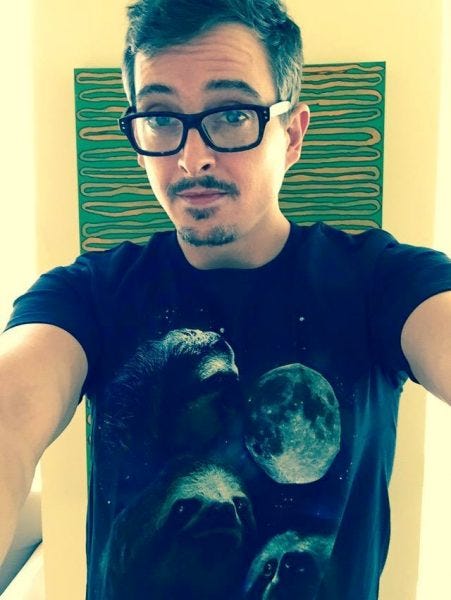
Do you have any advice for those looking to become a writer for Supernatural?
My advice is: don’t. Or, to put it another way: TV writing is a very specific craft, and if your desire to learn that craft and make a real go of it as a career is driven primarily by the desire to write for a single, specific show, you’re setting yourself up for heartbreak and failure! Getting to write TV, getting paid to write in any capacity– you’re already looking at a long, hard road with pretty tough odds. If your heart is set on one show, you’re making those already tough odds exponentially tougher. As a general industry rule: you don’t choose your show, your show chooses you. To be clear, I’m not dismissing Supernatural as an obsession and gateway drug to pursuing TV writing– certainly, my obsession with Buffy many years ago is what started my pursuit of this vocation. As for pursuing TV writing generally as a career? My advice is to read a lot, write a lot, and LIVE a lot. Experience matters. And take it from me, when you’re finally working in TV, you become a career-dominated, utterly BORING professional type-person FAST. So the more you’ve lived before that happens, the better.
How does the writing process work?
It varies from episode to episode, depending on how myth-y an episode it is, where we are in the season, etc. Our show has a bit more “independent study” than some shows, in that a good amount of the initial narrative legwork is done by the individual episode writer before the collaborative parts of the process kick in.
What is the best way to describe the atmosphere around the set?
It’s amazing, an incredibly well-oiled machine, with a cast and a crew who SERIOUSLY know what they’re doing and know how to do it with a good spirit. But I’ve had regrettably little time up in Vancouver! I’ve only been able to get up on-set for a handful of shoot days. Here’s hoping I can go up again near the end of this season and get in the mix with everyone… or more accurately stand back and gawp at how good everyone is at their jobs.
Do SPN family values apply to the writers, and what do you think those would be for the people you work with?
SPN family values apply to all the writers. Except for Meredith. ZING! The truth is I don’t fully understand the question, but maybe the answer is we do share the SPN family value of pranking and teasing each other, just like the cast and crew do up North. Except for Meredith. (Now I can’t stop. It’s okay cause she knows I love her the best.)
Do fan expectations every factor into story ideas?
Oftentimes, you’re writing so far ahead of what’s actually airing that it’s less about writing to fan expectations that to your best-guess imagining of what fan expectations will or could be. Sometimes, after the fact, you find ways to address or course correct a bit based off of fan reaction. It’s serialized, ongoing genre television, not an oil painting or even a movie– you’d be a fool not to listen to the audience. But you also need to learn how to turn it off. It’s not an either/or– it’s a strange kind of both– being totally open to the responses of the audience while also keeping a part of your creative consciousness completely divorced from it. As for specific ideas– it’s amazing how the fans will generate an idea that you or the show have already had– whether it’s an idea that’s already in production or an idea that was discarded for one reason or another. Our full-time job is to game out a hundred versions for every idea we actually use, so it shouldn’t be surprising when the occasional synchronicity occurs– but sometimes it’s eerie, like proof of a fandom/narrative collective unconscious. Sometimes smaller notions will pop up on social media that, if you see an opportunity to serve it, you try– little winks. For example, I saw someone on Twitter talking about wanting a scene of TFW stuck in traffic, and when I was writing Rock Never Dies I was desperate to get a scene of them in traffic into the show– it fit in the story, and even aside from the Twitter prompt, it felt important to me to go after the low-hanging fruit of a joke about LA traffic. I even wrote it, but shooting it was logistically impossible and expensive and we had to let it go. Later on, we ended up with a version of that scene with Sam and Dean where Jared and Jensen did some hilarious bonus ad-libbing– ultimately, a pretty great consolation prize.
The post Bob Berens talks writing for ‘Supernatural’ and his favorite episode appeared first on Movie TV Tech Geeks News By: Carol

